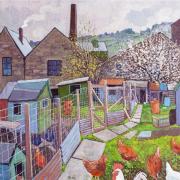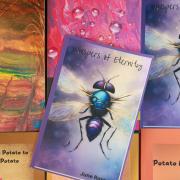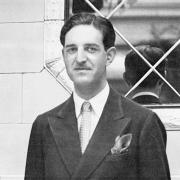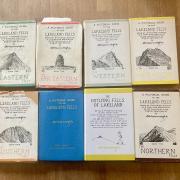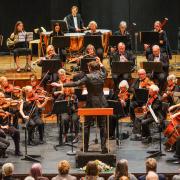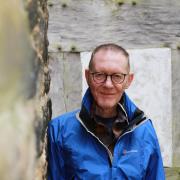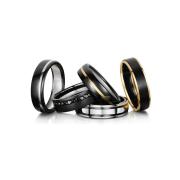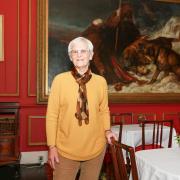Our exclusive guide to the rich and famous of Lancashire and the Lakes
Lancashire’s rich are doing pretty well despite fears of an economic slowdown.
Led this year by the Duke of Westminster, proud owner of the Abbeystead estate in the Trough of Bowland and the increasingly successful Liverpool One shopping centre, the top 30 richest in Lancashire, we have identified in the Lancashire Life Glitz List are now worth over �14.7 billion, up sharply on last year’s total of �9.2 billion.
Those on the list are a mixed bunch of entrepreneurs, owners of family businesses and celebrities and while we may cast envious eyes over manifestations of their wealth, we should not forget that many of them are huge job creators locally.
With the public sector shedding jobs fast, the continuing financial health of such large private employers is critical if the North West is to have some general prosperity in future.
Retailing, property and financial services are where the fortunes are made today. There are no industrialists left with huge factories churning out goods for the world markets. Instead we have their modern day cousins such as entrepreneur Matthew Riley, who has made his �88m fortune from his cutting edge Nelson-based telecoms company Daisy Communications. More Daisies are vital for the rebalancing of the British economy that government ministers have called for.
Lancashire’s old aristocrats and landowners, aside from Westminster, just do not have the acres or art to make it to our top 30. And while Paul McCartney and Ringo Starr feature, they really represent the old generation of rockers. No younger rock or pop stars have yet made enough to break into our ranks. And while the North West is filled with super-rich football stars, their wealth does not yet stack up enough to grab a place in our rankings.
The Duke of WestminsterProperty�7,000m
The grouse on the Duke of Westminster’s 23,500 acre Abbeystead estate in the Trough of Bowland area of the Ribble Valley were hit by Louping-ill, a virus infection of the central nervous system last year. With the Glorious Twelfth approaching, his keepers will be hoping the disease does not reappear this year. Since 1964 the Trough has been a protected Area of Outstanding Natural Beauty, having been recognised for its ‘precious landscapes whose distinctive character and natural beauty are so outstanding that it is in the nation’s best interests to protect them’.
While the Duke is better known for his ownership of 300 acres of central London and his Cheshire seat, he also plays a very important role in the urban North West through his ownership of the Liverpool One shopping centre. Opened in 2008, it was recently named as the world’s top shopping centre by the International Council of Shopping Centres and it is now 98 per cent let and defying the retail downturn. Yet in its early days it was derided as a white elephant and for its spiralling costs.
Indeed these cost helped push Westminster’s company, Grosvenor group into a �236m loss in 2009. But it swung into a healthy profit of �395m in 2010. The group has also built up a war chest of nearly �1 billion to return to global property markets.
The Grosvenor Group shares are owned by the trustees of various Grosvenor trusts set up for the benefit of the Grosvenor family, which is now headed by the sixth Duke, who stood down as chairman of the board in 2007 after 33 years in the role, although he has remained chairman of the trustees. The net asset value of the Grosvenor Group also rose in 2010 to �2.6 billion. With Westminster’s private estate assets outside the group added including Abbeystead we value Westminster at �7 billion.
Sir Paul McCartneyMusic�495m
Liverpool music legend Sir Paul McCartney refused to heed his financial advisers who told him to retire at 50. Now 69, he continues to record and tour because he enjoys it.
To prove it, he had a busy 2010 with a 10 show North American tour in the summer generating $27m box office receipts from 190,000 fans.
McCartney also concluded a new license deal for his post-Beatles recording catalogue moving from EMI to Concord Music Group in August. It should have attracted a significant advance.The main Beatles’ company, Apple Corps, is still doing well. In the year to January 2010 its profits soared to �15.3m on nearly �50m sales. In autumn 2010 two further catalogue records, the Blue and Red double compilation albums were issued in re-mastered form.
In the UK alone these generated sales of over 160,000 copies each by the year-end. Thenlate in November Apple/EMI finally released the bulk of the band’s catalogue for digital downloads via an exclusive deal with iTunes. As a result of the huge interest now in the Beatles’ back catalogue, we now value McCartney at �495m.
Martin Ainscough and familyProperty�205m
Ainscough Crane Hire, was founded in 1976 by Gerard Ainscough. The Wigan-based company was run by his three sons Martin, James and Brendan, until its sale for �255m in October 2007 to its managers. The Ainscough family had around 90 per cent of the shares worth around �230m. They are now investing heavily in property through Ainscough Strategic Land, which is embarking on a �40m development in Cheshire on the site of a former Nestle factory. We can also see around �15m net assets in various Ainscough companies including Ainscough Investments. After-tax, the family should be worth perhaps �205m.
Tom Morris and familyRetailing�460m
Liverpool-based discount retailer Home Bargains was started by Tom Morris who opened his first store in 1976. Morris had retailing in the blood, as both his parents and grandparents were shopkeepers. TJ Morris, the parent company for Home Bargains, produced nearly �48m profit on �590m sales in 2009-10. With a strong balance sheet and low borrowings, it should easily be worth �450m in the current climate. It plans to be a �1 billion turnover company by 2013.The Morris family own it all. Other assets add �10m.
Fred and Peter DoneLeisure�660m
Fred Done hit the national headlines in June when his �265m bid for the state-owned Tote bookmaking chain trumped a rival bid. Done, well known in the North West for his Betfred operation which is merging with the Tote, was raised on Salford’s tough Ordsall estate in the 1950s.
Working with his brother Peter, he started out as bookie’s runners for their father who ran what was then an illegal betting operation. From a single betting shop in 1967, the pair now own what has become one of the largest bookies chains in Britain, operating under the Betfred name.
The Done brothers also have interests ranging from legal services to insurance
Trevor HemmingsProperty�550m
Leisure tycoon Trevor Hemmings has two passions: football and racing. In April his horse Ballabriggs won the Aintree Grand National, his second triumph in the great race. Hemmings could make a lot of money from selling his 41.5 per cent stake in Arena Leisure which runs Doncaster, Royal Windsor and Lingfield Park racecourses. But football is not so lucrative for Hemmings.
He had to rescue his beloved Preston North End in July 2010 by paying the club’s latest tax bill. Hemmings, who holds an 88.5 per cent stake in North End, loaned the club �200,000 through his Guild Ventures investment group. Hemmings’ loans to the club are now just shy of �15m. Hemmings has the cash, having sold the famous Blackpool Tower to the local council for around �40m recently.
He started out as a bricklayer’s apprentice in Leyland, later building his own housebuilding firm, selling it for �1.5m in the early 1970s to the late Sir Fred Pontin. Hemmings became his right hand man in the Pontins leisure operation and later took over the business, selling it in 1989 for a hefty profit. In 2000 he bought the Littlewoods’ pools operation fromthe Moores family for �161m. His main holdings company, the Northern Trust Group, has �122m net assetsin 2009-10. His pub company Trust Inns has �84.3m net assets while wecan see �47m of stakes in quoted companies. Hemmings is now easily worth �550m.
John MorphetLeisure�98m
Having to give up farming through injury, Morphet moved into caravans. He sold his company, South Lakeland Caravans, for around �74m in 2006. He diversified into developments in Barbados and has also built up a new caravan and golfing business here. His Pure Leisureshowed a �3.5m loss on �31.5m sales in 2009-10, while its net assets were nearly �73m. It is worth the net assets. Allowing for reinvestment of sale proceeds, we value Morphet at �98m.
Ron WoodRetailing�95mWood made �90m in 1996 from the sale of his Ron Wood greetings card operation, which he had started 21 years earlier. He is now involved in property development through Bury-based Ron Wood Developments. It had �192,000 net assets in 2009. Wood is worth �95m.
Kirit and Meena PathakFood�130m
The Pathak family sold its Patak’s spice operation in 2007 for a reported �200m. It was in 1956 that Kirit Pathak’s late father, Laxmishanker, arrived in Britain from his native Kenya. His search for work led the family to work 18-hours a day at the kitchen table, reviving their sweet and spice business from Kenya, serving their friends from Africa. The Wigan-based operation has become one of the fastest growing companies in Britain. Laxmishanker Pathak died in 1997, but under Kirit and his wife Meena, the company forged ahead. Kirit Pathak remains as chairman of the company. After-tax the family proceeds should be �130m.
John Halewood and familyRetailing�125m
Liverpool-based Halewood International was founded in 1978 by John Halewood and now exports drinks to more than 40 countries worldwide. In 2009-10 Halewood made �8.7m profit on �262m sales. With �42.7m net assets it is worth �60m. Halewood also has a 71 per cent stake in HIFX plc, a Windsor-based foreign exchange operation worth �70m, on the backof a �3.5m profit on �9billion sales in 2009-10. Halewood is best known for his horse, Amberleigh House, trained by the legendary Ginger McCain, which won the 2004 Grand National. Other assets take Halewood to �125m.
Ian and Andrew HallFood�95m
James Hall, a Preston-based food group, was founded in 1863 when James Hall opened a bacon cutting business and retail shop. The fourth generation of the family in the shape of brothers Ian and Andrew, now run the business which made �9.6m profit on �434.9m sales in 2009-10. With �74.3m net assets, the business is worth �94m in the current climate. Other assets add �1m.
Lord Grantchester and the Moores familyRetailing�1,200m
The Moores family have had a long and proud association with Liverpool. The late Sir John Moores founded the Littlewoods football pools operation in 1923 and when – after a difficult start – he had made his millions, he opened the Littlewoods mail order business and five years later the first Littlewoods store opened in Blackpool.
Moores handed over control of the pools to his brother Cecil in 1960 and became director and later chairman of Everton Football Club. His nephew David was a long time chairman and 51 ukper cent owner of Liverpool until 2007. Lord Grantchester, Sir John’s eldest grandson, now carries the flag for the family at Everton, where he has a small stake and donated �100,000 towards the �800,000 cost of acquiring the Everton Collection of memorabilia early in 2008.
The family wealth derives from the sales of the various businesses: it sold some stores in 1998 and the pools side of the business in 2000 collecting �445m in sale proceedsand dividends. But another windfall came in 2002 when the remaining department stores and mail order operation were sold for �750m. In all the Moores family should be worth perhaps �1200m after-tax and charitable donations.
Henry Moser and familyProperty�165m
Co-founded by low-key Henry Moser in 1973, Jerrold Holdings specialises in secured lending to both residential and commercial customers. Moser left school at the age of 16 and worked on market stalls as a market trader. Jerrold Holdings made �44.1m profit on �135.6m sales in 2009-10. Barclays Private Equity invested �113.5m for a 30 per cent stake in 2006. We cautiously value the business at �200m in the current climate. That values the Moser family stake at �140m. Past dividends etc should add, we think, another �25m.
Sir Michael Bibby and familyTransport�173m
Bibby Line Group, the old-established Liverpool shipping line, now 204 years old, has diversified into other areas of business, such as debt factoring, financial services and food distribution. In 2009 profits came in at �21.8m on �1.089 billion sales. The group’s net assets rose to �218.7m and we cautiously value the company at that level. That values the stake held by Bibby family trusts at around �173m. Sir Michael Bibby, an accountant by background, is the sixth generation to head the business.
Anwar and Yakub PatelChemists�103m
The Patel brothers set up their first chemist shop in Rochdale in 1980. The brothers, Anwar a pharmacist and Yakub an accountant, sold 111 of their pharmacies to Lloydspharmacy for �130m in 2005. After-tax, the brothers’ proceeds should have been at least �80m. They kept 30 pharmacies trading under the Scholes and Cohen names. They also have the separate pharmaceutical wholesale business Prinwest, which made �4.9m profit on �39.8m sales in 2009. The Patels should easily be worth �105m but we have knocked off �2m for a City Academy donation.
Ringo StarrMusic�150m
Ringo Starr staged a 30 date tour in North America in the summer of 2010, his 11th with the All Starr Band and he released a CD/DVD ‘Live at the Greek Theatre’. The main Beatles’ company, Apple Corps, is still saw its profits soar to �15.3m on nearly �50m sales in 2009-10. Two further catalogue records, the Blue and Red double compilation albums were issued in re-mastered form in the autumn of 2010. Then late in November Apple/EMI finally released the bulk of the band’s catalogue for digital downloads via an exclusive deal with iTunes. In 2009-10, Starr’s Startling Music company made a �3m profit on �3.3m sales. As a result of the huge interest now in the Beatles’ back catalogue, our rock expert raises Starr’s valuation to �150m.
Doreen Lofthouse and familyFood�175m
Fisherman’s Friends, the super-strong lozenges, comes in 19 flavours and some 96 per cent of the output goes overseas to 120 countries. Concocted by a Fleetwood chemist, James Lofthouse, in 1865 the original menthol and eucalyptus recipe was seen as an aid to local fisherman who braved freezing conditions.
In 2010, profits at the parent company Lofthouse of Fleetwood, fell from �5.8m to �5.6m on sales up slightly at �36.3m. The company also has net assets of over �65.4m. Still owned by the Lofthouse family, led by the formidable Doreen, the brand was at �175m in the boom years. We are more cautious and settle for �160m. Past dividends etc add �15m.
Brian Scowcroft and Janet LeftonProperty�162m
Scowcroft’s Kingmoor Park Properties operation saw its net assets rise in 2009-10 to �21.1m. He has ploughed around �7m of his own money into the site outside Carlisle, helping create over 1,300 jobs. Before his property work, Scowcroft was boss of Swinton Insurance, started by his father in 1957. By the early 1990s the Scowcroft family had made around �150m from the sale of the business. His sister Lefton runs Roundhouse, another property operation. We can see �29m net assets in family companies. Scowcroft is a sponsor of Carlisle’s fast improving Richard Rose Academy. In the family are worth �162m after-tax.
Iqbal Ahmed and familyFood�130m
Ahmed’s Seamark Group made �6.3m profit on �95.3m in 2010. The Manchester-based food processor specialises in shrimps with a growing sideline in chicken. The Ahmed family, originally from Bangladesh, also has a new facility in the Bangladeshi city of Chittagong, which has recently been extended. A �5m Thai restaurant called Vermilion has also opened on the Seamark site and is being expanded with a �3m investment. Ahmed, who was awarded an OBE in 2001 for services to international trade, and his family are now worth around �130m.
Kenneth TownsleyLeisure�118m
Townsley collected the final �47.5m in December 2009 from the sale of his Gold Medal travel operation, taking his total to �84m Townsley started out in travel aged 15 in 1961 as an airline traffic officer apprentice for Silver City Airways at Blackpool airport, a job that involved baggage handling. He used a redundancy payout to set up his first company in a rented Blackpool shop. Called Trident Travel in Blackpool, it focused on group trips. ‘I started with a big trip to see the heavyweight boxing match between Muhammad Ali and Joe Bugner in Kuala Lumpur,’ he once said.
Townsley also claims to have operated the UK’s first-ever charter to Disneyworld in Florida, with Trans America Airlines. The business grew rapidly and renamed Gold Medal it arranges flights and tours to 1,500 destinations worldwide, focusing on the United States, the Middle East, the Far East and Australasia. He used a redundancy payout to set up Trident Travel. Renamed Gold Medal, it grew rapidly focusing on the United States, the Middle East, the Far East and Australasia. Property and other assets take Townsley to �118m.
Phillip Sheppard and familyIndustry�635m
Liverpool-based European Metal Recycling made �91m profit on �1.8billion sales in 2009. Headed by Phillip Sheppard, it is one of the world’s largest recycling companies and crushes 1m cars a year. With nearly �500m net assets, EMR is a �600m business. The Sheppard family owns it all and we add �35m for other assets and past dividends.
Lord Alliance and familyRetailing�290m
Home shopping group N Brown pushed up profits by 5.5per cent in the first half of 2010-11 to �44.1m. Lord Alliance, the N Brown chairman said the positive trends had continued in the second half. Alliance has of course seen many ups and downs in the fashion and textile sector since arriving in Manchester virtually penniless at the age of 17 from Iran in the austere years after the Second World War. Alliance was made a life peer by the Liberal Democrats in May 2004. The Alliance family stake in N Brown is now worth �250m. We add �40m for other assets.
Simon and Bobby and Robin AroraRetailing�343m
The Arora brothers, Simon, Bobby and Robin, run and own fast-growing discount retailer B&M Retail. The Merseyside-based operation now attracts two million customers each week and has over 230 branches. New stores are opening weekly. In 2009 B&M made �33.8m pre-tax profit on �427m sales. With a strong balance sheet and �42.2m net assets, it should be worth �255m. Another business, Opus Homewares is worth �48m on the back of �6.2m profit in 2009. The brothers’ first operation, Orient Sourcing Services was sold in 2001 for a �30m profit. With other assets we value the brothers at �343m.
Matthew RileyTelecoms�88m
Matthew Riley set up Nelson-based Daisy Communications in 2001. It provides corporate telecoms to small and medium-sized companies. The fast-growing company floated on the stock market in 2008 and is now valued at �262m. Riley retained a stake now worth �73.5m and made �28m in cash from share sales. We value him at �88m after-tax.
Stuart WallProperty�180m
Manchester-based Opal Property group is the biggest provider of high-quality student accommodation in Britain It also provides affordable accommodation for key workers such as NHS staff, and has developed private apartments. The company, founded in 1982 by Wall, made a loss of �5m in 2010 but with net assets of �246.5m, should be worth �180m now. Wall owns it all.
Philip DayRetailing�300m
Clothing chain Edinburgh Woollen Mill raised profits by 33.6 per cent to �22.2m on �193m sales in 2009-10. The Borders-based operation is run and owned by Day, an experienced retail executive based in Cumbria. He is taking the group into home textiles and has acquired the premium outerwear brand Proquip. The business is worth �250m. Day’s other assets add �50m.
Geoffrey Halstead and familyIndustry�255m
Bury-based James Halstead makes vinyl tiles and motorbike accessories. The firm was founded in 1915 by the grandfather of the present chairman, Geoffrey Halstead. He only has a small direct stake but the family and family trusts own nearly half the company, which has rebuffed several takeover approaches. With shares at record levels, the Halstead family stake is now worth �240m. Past dividends and other assets should take the family to �255m.
Dave Whelan and familyFootball�190m
Wigan Athletic were in the bottom three of the Premiership for most of the 2010-11 campaign but managed to retain their Premier League status on the last day of the season, defeating Stoke City away. It was another miraculous escape for the Latics which will have delighted Dave Whelan, the club chairman and owner.
Whelan actually started his career as a footballer but his career ended when he broke his leg while playing for Blackburn Rovers in the 1960 FA Cup Final. He then turned himself into a successful entrepreneur, and built the JJB sports retailer. In 2007 he sold his family stake in JJB for �190m to an Icelandic-backed consortium and left the company. Despite the hefty investment in Wigan, Whelan should be worth �190m as he has other assets and sold over �60m worth of shares in previous years.
David HudalyDentistry�100m
Private equity group Carlyle bought the Bolton-based dental Integrated Dental Holdings in January and joined it with another dental group to create the biggest operation of its kind in Britain. The deal was valued at over �450m. Integrated Dental Holdings was set up in 1996 by a third generation dentist, David Hudaly, who trained in Liverpool.
It floated on the Aim in 2002 valued at around �45m but was taken private two years later. Hudaly had around 10 per cent of the shares at the time.
In 2006, Legal and General Ventures bought a majority stake for around �60m. Hudaly stayed on at the business and in February 2008 when a second takeover went through by Merrill Lynch Private Equity, he had around 29 per cent of the shares. The third takeover by Carlyle should have valued Hudaly’s proceeds at around �100m after-tax.
Michael FreemanIndustry�120m
Ex-oil rig manager Michael Freeman runs and owns Can Holdings, supplying inspection services and specially trained personnel for inspection and maintenance of North Sea oil rigs and the like. A North Sea veteran, Freeman has built a sound business. In 2009 Can Holdings made a record �16.4m profit on �67.4m sales. Freeman, who owns it all, takes little out of the Lancashire-based business. We value him at �120m with other assets.



